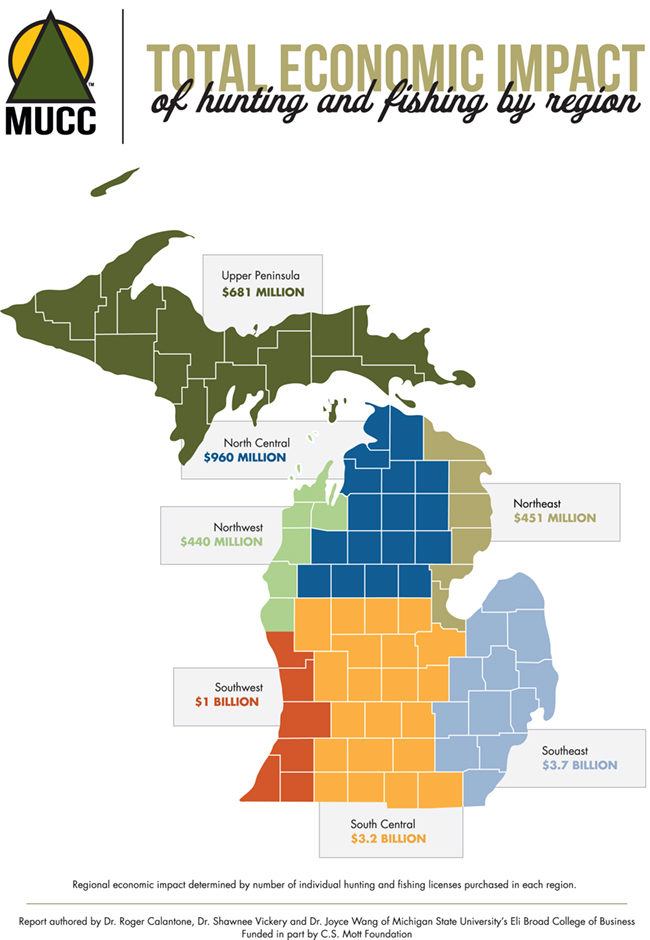
A report authored by Michigan United Conservation Clubs (MUCC) has ranked Michigan as first among states bordering the Great Lakes for the number of jobs created more purchases related to hunting and fishing.

Some 171,000 jobs are created and supported annually, according to the report, which adds that more than $11.2 billion generated makes hunting and fishing among the top 10 percent of job-creation industries.
The greatest impact is said to occur in Southeast Michigan.
From an overall economic impact, the numbers quoted are more than twice as much as previous estimates from the U.S. Fish and Wildlife Service, according to the report commissioned by the MUCC, which turned to the Eli Broad College of Business at Michigan State University, with funding from the C.S. Mott Foundation.
The goal, according to a media release, was “to more accurately quantify the impact” that the activities have on the state’s economy.
Amy Trotter, MUCC’s executive director said every region of the state benefits from those who hunt and fish. The activities, she said, “are vital to continuing Michigan’s prosperity now and in the future.”
Officials say the MUCC report is the most comprehensive effort to date geared toward measuring the annual statewide economic impact of Michigan’s 700,000 hunters and 1.1 million anglers—$8.9 billion from hunting and $2.3 billion from fishing, numbers that include purchases of gear and clothing, hotel rooms, and meals.
“This is information the conservation community has long needed to improve our understanding of the financial importance of outdoor recreation,” said Daniel Eichinger, director of the Michigan Department of Natural Resources, who prior to his appointment in December 2018 was executive director of MUCC.
The report shows that for every $1 million spent on purchases related to hunting and fishing, 19.61 jobs are created for state residents.
Officials say previous estimates in Michigan and other states were based on a narrow formula that used survey results of just 187 Michigan households. That survey methodology, which was used as recently as 2011, resulted in much lower numbers from an economic benefit standpoint and number of jobs created.
State Representative Gary Howell (R-North Branch), who chairs the House Natural Resources Committee, said the new report should deliver “a new appreciation for the economic power Michigan’s sportsmen and sportswomen deliver. That helps make our state a great place to live, work and recreate.”
The MUCC report was authored by three professors in the Eli Broad College of Business: Roger Calantone, Shawnee K. Vickery and Joyce Wong.
The MUCC-MSU report can be found online at mucc.org.









